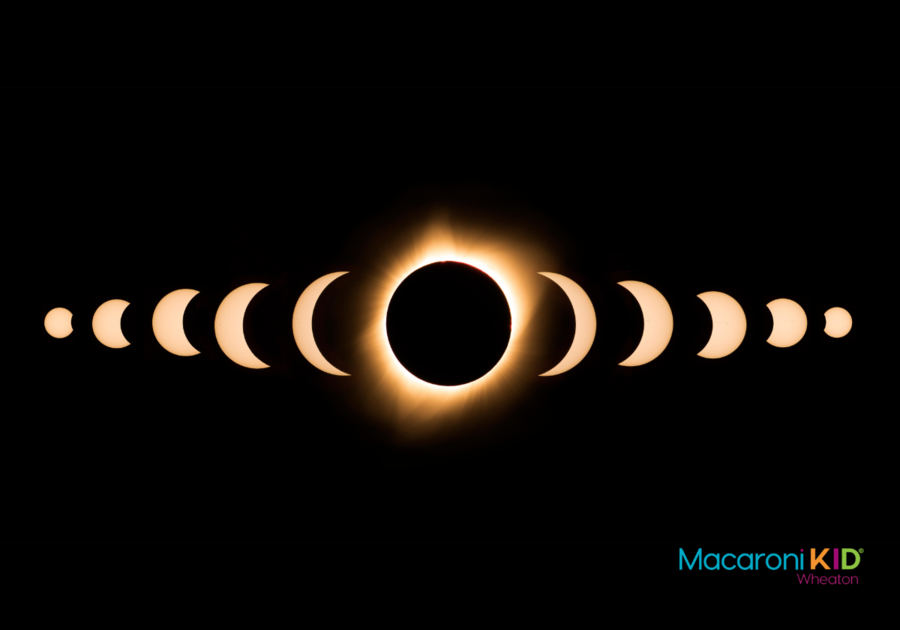On April 8th, 2024, there will be a Total Solar Eclipse for the first time since 2017!
About the Solar Eclipse |
What is a total eclipse? It's when the Moon passes between the Sun and the Earth completely blocking the Sun for a period of time. The Great American Eclipse will happen on April 8th, 2024. While Illinois is one of the few states in the path of totality, we are a little too far north to see it completely. Every state in the contiguous U.S. will be able to see some form of the eclipse, total or partial. In Wheaton, the eclipse will still be visible from 12:50 pm and pass completely by 3:21 pm. https://www.timeanddate.com/eclipse/in/usa/wheaton?iso=20240408
Why is this Eclipse so special? There are so many different types of eclipses. Total, Annular, Hybrid, and Partial as per www.science.nasa.gov . The next total solar eclipse in this path will not happen again for 126 years. The Moon will block the Sun creating a shadow over it's path on Earth and leave just the Sun's corona visible. It's an extraordinary site.
Safe Viewing Tips |
Here's some safety tips from NASA on how to view the Eclipse:
- When watching the partial phases of the solar eclipse directly with your eyes, which happens before and after totality, you must look through safe solar viewing glasses (“eclipse glasses”) or a safe handheld solar viewer at all times. Eclipse glasses are NOT regular sunglasses; regular sunglasses, no matter how dark, are not safe for viewing the Sun. Safe solar viewers are thousands of times darker and ought to comply with the ISO 12312-2 international standard. NASA does not approve any particular brand of solar viewers.
- Always inspect your eclipse glasses or handheld viewer before use; if torn, scratched, or otherwise damaged, discard the device. Always supervise children using solar viewers.
- Do NOT look at the Sun through a camera lens, telescope, binoculars, or any other optical device while wearing eclipse glasses or using a handheld solar viewer — the concentrated solar rays will burn through the filter and cause serious eye injury.
- If you don’t have eclipse glasses or a handheld solar viewer, you can use an indirect viewing method, which does not involve looking directly at the Sun. One way is to use a pinhole projector, which has a small opening (for example, a hole punched in an index card) and projects an image of the Sun onto a nearby surface. With the Sun at your back, you can then safely view the projected image. Do NOT look at the Sun through the pinhole! Check out our instructions and step by step video on how to make your own pinhole projector!
Source: https://science.nasa.gov/eclipses/future-eclipses/eclipse-2024/safety/
Where to Get Eclipse Glasses |
American Science & Surplus, West Chicago
while supplies last
Quest Bookshop, Wheaton
$1.99, while supplies last
Wheaton Library
One pair per family, while supplies last
Learning Express Glen Ellyn
$2.99 each, while supplies last
Glenside Library
April 6th, 6:00-8:30 PM
Warby Parker
While supplies last!
Glen Ellyn Park District
Spring Avenue Recreation Center, Main Street Recreation Center, and Ackerman SFC
Eclipse Viewing Events |
Not able to head outside to view this live? Watch the total solar eclipse live here on Space.com



